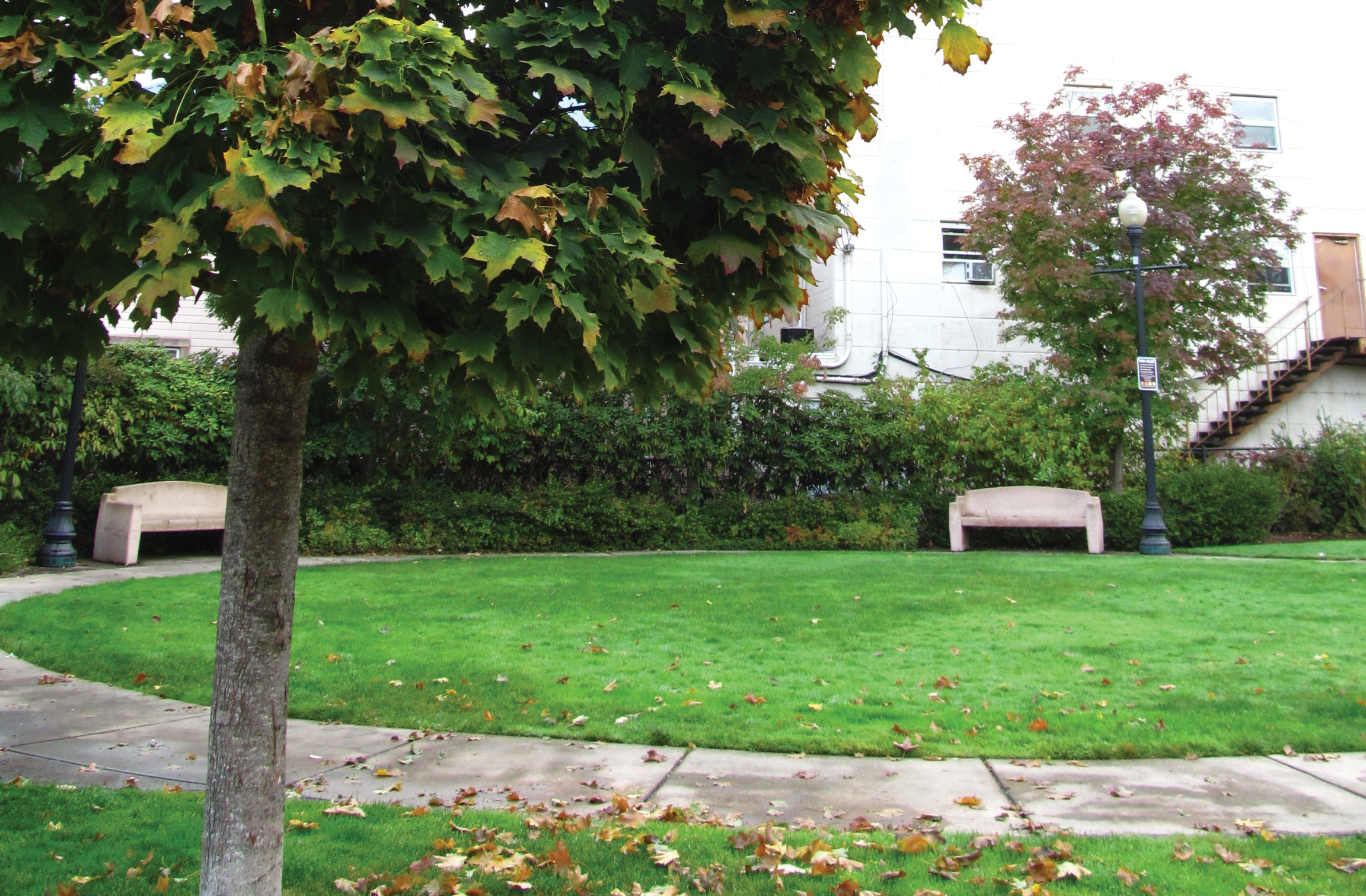Snyder memorial options being considered

The community is beginning to feel the need for a physical space to honor those who suffered through Oct.1. Students are starting to form visions of a UCC memorial while discussing the future of Snyder Hall and what it represents. There are no easy answers. The road to healing is a different one for each individual.
Evan Burns, a UCC history student, sees a memorial as a positive way to transform the campus. He envisions a tribute which would be integrated into the day-to-day life of the college, something more than just a place of remembrance.
“If I was to build a memorial,” Burns said, “it would be an outdoor classroom, something that could be used by future generations instead of passed by without a glance.”
The building he described could be an outdoor gazebo surrounded with a lattice of roses; the names of the nine inscribed in plaques around the edges. The gazebo could be used as a writing classroom in memory of associate professor Larry Levine.
Other students have concurred with the wish for a memorial, especially one in line with the landscaping and natural beauty of the campus.
“Having something like a garden, a peaceful place that people could go and study would really help with the healing process. And it kind of helps us reclaim campus for ourselves and it brings a sense of peace to everyone who are able to go there,” said Alicia Graves, editor of The Mainstream.
Not everyone, however, feels that a large, physical reminder of the tragedy on campus is a good or necessary thing. Rebecca Foster, a chemistry major and second-year student at UCC, believes that something small or discreet like a plaque or a dedicated tree somewhere on campus would be more than enough. She points out that those who were the most affected by this likely already have their own personal memorial.
“I think that as a campus, as a college and as a community of students and professors and staff and everything, that this is something that we carry within ourselves and that is not something we should attach to a place because we don’t want to make our school haunted. Because it’s not,” Foster said.
She also voiced a concern, echoed by other students and faculty, that if Snyder Hall is torn down or rebuilt it will remain as a continual reminder of what happened and hinder the recovery process. The old hall, which was among the first campus structures to be built, has housed writing, speech, and social science classes and faculty offices since the early 1960s. A committee is convening in November to decide what is to be the future of Snyder, and no decision will be made until then. For now, discussion about the meaning of the hall and its potential role as a memorial is ongoing.
“I think the best place honestly for a physical memorial on campus is going to be Snyder Hall. I believe that it’s going to be the affected classroom,” said Maycie Williams, a second year student.
Her idea is to turn the Snyder 15 classroom into not just a memorial but a resource center with information from the Community Health Alliance as well as mental health resources. Williams is also calling on women across campus to take an active, leading role in the Snyder Hall decision-making process. Williams recently completed an intensive women’s leadership program called New Leadership Oregon as a representatives from UCC.
Mark Hamel, a physics student, agrees that he could see the Snyder classroom as a memorial.
“I’m not a fan of tearing Snyder Hall down at all. So, what, like, I’m looking at it over there, if we tore it down then what would it be? It’d just be a scar,” Hamel said, “and to me that would mean the murderer would be winning, and I don’t want him to win.”
He is, however, supportive of the possibility of replacing Snyder with a new building, using the funds coming in from nationwide donations.
In light of what many have personally experienced in and around Snyder Hall, the voices of those who see removal as the most positive option may carry a definitive weight.
The building’s condition may also factor into the decision. It currently has leakage around its skylights and around the condensation pads set into the roof. According to Director of Facilities Jess Miller, the roof would need to be removed to fix the building. Students and faculty report see-through gaps and air quality problems as well.
“I personally feel that they should tear down the building and put up a nice new building,” says Theresa Barry, a communications studies student.
Amy Fair, the department chair of Snyder Hall, says she understands that decisions about the hall, and the classroom itself, will be hard. She is unsure if remodeling will take the history out of the classroom and is also unsure if removing the building is needed.
“Some people just want to be able to move forward and sort of prevail, but there is also a large group of students and faculty and staff who are trying to do that but the reminders are present everywhere,” Fair said. “There’s a responsibility to other students on campus and we recognize that as instructors. What students need is probably what most of us would be behind.”
UCC Interim President Rita Cavin has repeatedly reminded staff and students that any true act of remembrance and transformation will only be realized through dialogue and mutual understanding. Burns agrees, “What will be the memorial should be everyone’s vision.”
